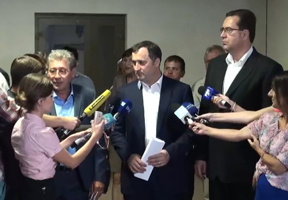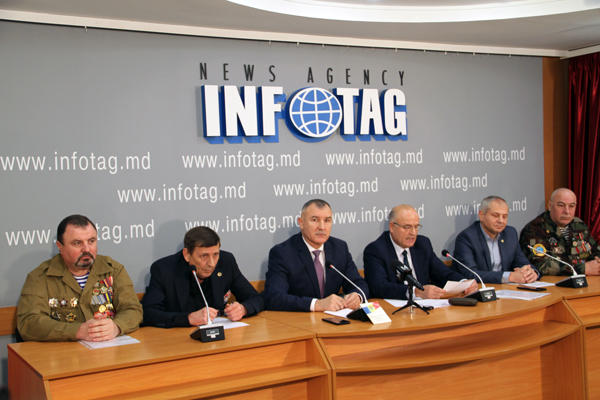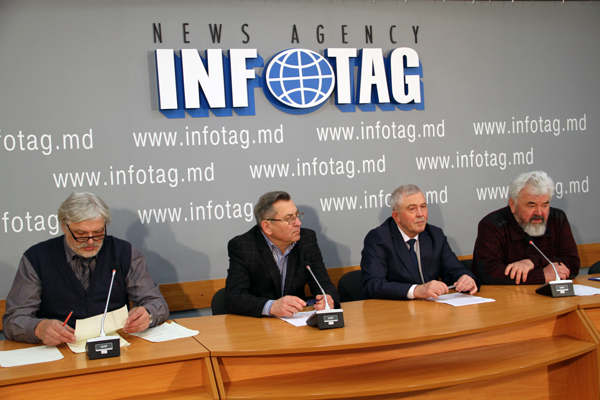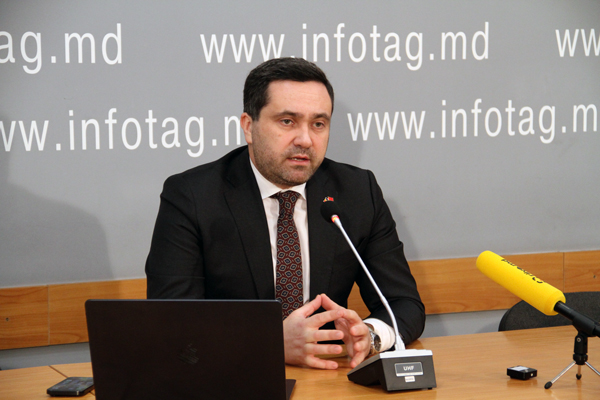Politics
MOLDOVAN PRO-EUROPEAN PARTIES AGREE ON FORMING PARLIAMENTARY MAJORITY

The Liberal Democratic Party, Democratic Party and Liberal Party have reached an agreement on forming a pro-European parliamentary majority, their leaders Vlad Filat. Marian Lupu and Mihai Ghimpu stated to the press last midnight, when they completed their Tuesday round of talks.
Vlad Filat stated that the sides had agreed upon all questions and items, and the document text was initialed by all of the negotiators.
“This is a good political agreement that should ensure a stable parliamentary majority for Moldova. In the nearest future, we will appoint a new Cabinet of Ministers that will embark on establishing order in the country and solving citizens’ vital problems”, said Filat.
Liberal Party Chairman Mihai Ghimpu voiced satisfaction over the creation of a new European majority, which he perceives as a good sign for Moldova citizens and for the country’s foreign partners.
“The Alliance for European Integration, AEI, which seemed dead to many, began making movements and has developed by now into AEI-3. We must bring to a logical end what we started in 2009”, said Mihai Ghimpu.
Democratic Party leader Marian Lupu stressed that the Tuesday’s round of talks marked not only the initialing of the Alliance agreement but, essentially, the completion of debates.
“The new governing alliance will be coordinated on a collegial basis. In the nearest time we will enter into consultations with President Nicolae Timofti and will initiate necessary parliamentary procedures for a soonest-possible appointing of prime minister, approval of government and its work program”, said Marian Lupu.
The negotiators said that in the nearest days their meetings will be devoted to approving the new Government’s lineup and that the prime ministerial post will remain after the Liberal Democratic Party and the parliament speaker’s post – after the Democratic Party.
As already reported by Infotag, after the July 29, 2009 parliamentary elections, four pro-European parties – the LDP, DP, LP and Moldova Noastra Alliance – formed the first Alliance for European Integration, which had 55 deputies in the 101-member Parliament of Moldova. However, the Alliance failed to elect president of Moldova because that required minimum 61 ballots in the forum. So, on November 28, 2010 the country held an early parliamentary election, after which the LDP, DP and LP came to have 59 deputies in parliament and formed AEI-2. But, again, that strength was insufficient for electing a president. But the group of three MPs, who had divorced the Communist faction shortly before that – Igor Dodon, Zinaida Grechanaya and Veronica Abramciuc – voted on March 16, 2012 for the AEI presidential candidate Nicolae Timofti, who was Chairman of the Superior Council of Magistrates then.
One year later, a new political crisis broke up in Moldova, when Prime Minister Vlad Filat denounced unilaterally the AEI formation agreement. As a result, Speaker Marian Lupu and Premier Filat were dismissed.
In May 2013, seven members of the parliamentary Liberal faction announced their leaving the party and the LP faction and, together with the Liberal Democrats and Democrats they formed a Coalition for Pro-European Governance, which had lasted until the November 30, 2014 parliamentary elections. All that period, the remainder LP faction was in the opposition.
After the November 30 elections, at which the LDP, DP and LP won a total of 55 seats in parliament, the three parties began their new negotiations on forming a governing alliance, but the talks suffered a failure because none of the talk participants wished to agree to a compromise.
Later on, at the beginning of 2015, the Liberal Democratic Party and Democratic Party announced their forming a minority coalition of 42 MPs that had lasted until June 12 when Prime Minister Chiril Gaburici tendered resignation and his Cabinet was dissolved. Eventually, the three pro-European parties agreed on forming AEI-3.
According to local analysts, the new coalition is going to be quite fragile because it will have only 52 MPs whereas decisions in the Parliament are taken usually by a minimum of 51 deputies. Yet the coalition may try to be friends with 4 new independent deputies namely three who have left the Liberal Democratic faction and one – the Socialist faction.
























Add Comment